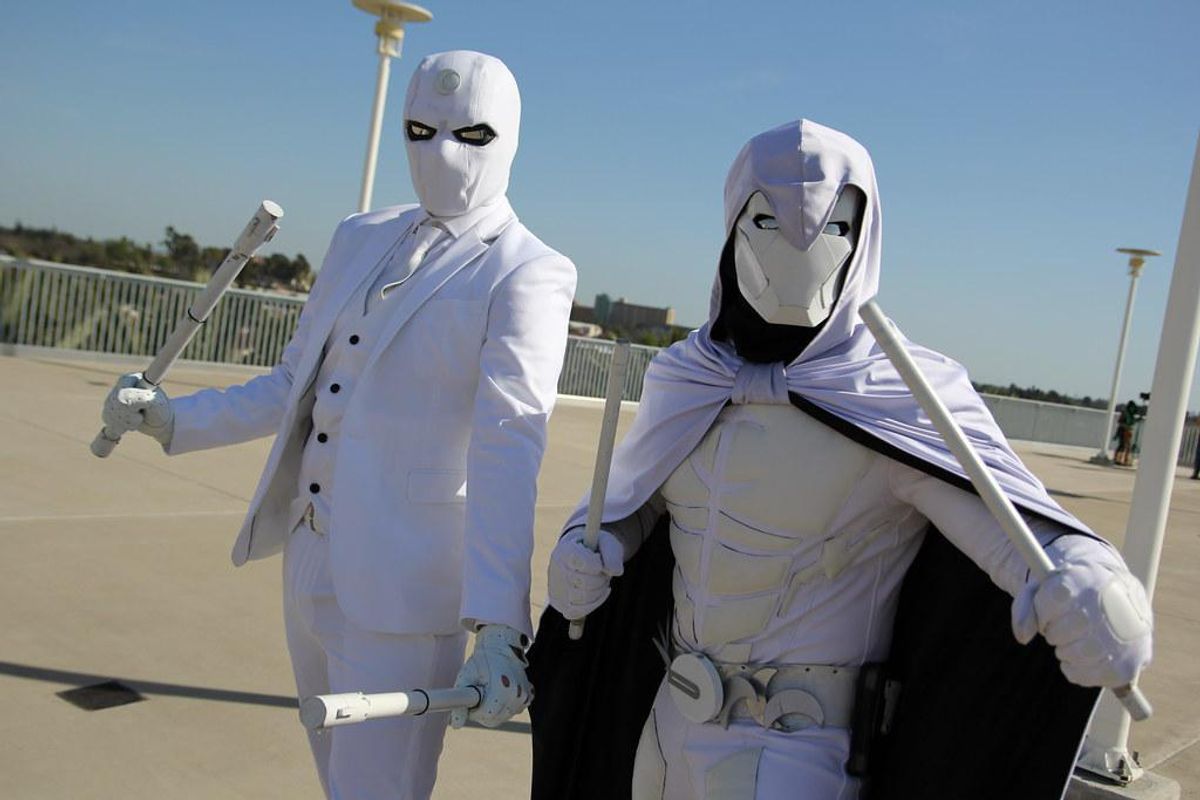
The great thing about Marvel is: even if you’re exhausted with superhero movies (it’s okay, I am too) the franchise often sprinkles their mega fights and formulaic plots with thought provoking, empathetic character studies.
In the recent limited (or maybe not so limited) series “Moon Knight”, the hero Marc Spector has Dissociative Identity Disorder (DID), a mental condition where a person has at least two or more distinct personalities. As with any piece of art made public, there has been criticism of the show, in particular of the accuracy of its portrayal of DID.
However, the negative feedback misses Moon Knight’s ultimate success: Marc’s story not only inspires compassion for mental illness, it also shows us that sometimes the biggest battle we face is simply loving ourselves entirely.
Warning: Spoilers for the series below!
For most of the show, Marc’s alternate personality Steven Grant is the primary protagonist. Until the penultimate episode, when we learn he was created by Marc to help escape his painful childhood.
After the tragic death of his younger brother, who drowned in a cave while the two were playing, Marc’s mother blamed him for the loss. Her resentment forced him to endure severe neglect, abuse, and cruelty while internalizing his own guilt.

While in reality DID is much more complex, “Moon Knight” does faithfully capture the healing made possible through opening up about our trauma and mental illness. As both characters face the truth together, both Marc and Steven are able to reconcile. In the end, they are no longer at odds—they become brothers.
In the final episode’s emotional climax, we see Marc, a man bestowed with magical fighting abilities, turn to Steven, the creation forged by his own suffering, and whisper:
“You are the only real superpower I ever had.”
In this hard won victory of self-acceptance; Marc’s heart becomes whole again.
In my personal life, I’m a practitioner of EFT, a healing modality that blends aspects of both psychotherapy and acupressure. In EFT, there’s a concept of “bringing love to the pain.” In a session with a coach, or by themselves, a person visualizes a traumatic memory from childhood. As they tap on their body—where trauma often gets stuck—they repeat phrases like “even though this happened, I still love and accept myself.”
The idea is that by repeating these positive phrases out loud while simultaneously releasing stored negative energy in the body, we can rewire our brains to stop repeating the same story associated with those memories. It might sound a little woo-woo, but there’s quite a bit of scientific evidence showing how effective EFT can be. Sometimes all it takes is genuine love and forgiveness for ourselves. It’s simple, but not always easy. Even Marc had to go through Egyptian Hell to achieve it.
Regardless of a mental health diagnosis, this is a universal challenge. How many of us can look into the mirror and truly love everything that we see?
For some, perhaps even for most, this is a lifelong process. But “Moon Knight” teaches is that self acceptance has profound benefits on our character.
